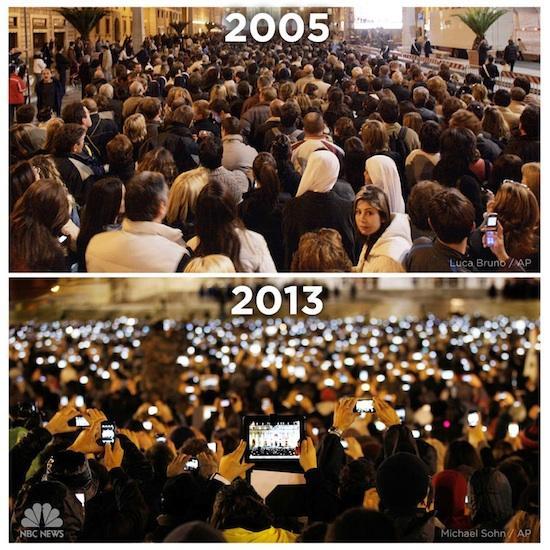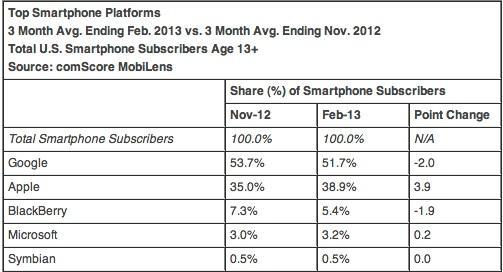
It's a good time to be involved in mobile technology. In fact, I sometimes wonder how it could get any better. And then it dawned on me. What of a web-based mobile OS, or one with multi-platform compatibility? In other words, there's a lot left to be desired in mobile. Whether or not we need a fourth operating system is negligible, but there is a clear space for it. The real question is whether or not there is mind share yet to be untapped. I believe there is enough to capture in emerging markets for a fourth mobile OS.
Look to iOS if you're indebted to their ecosystem and enjoy dreaming of what's next. Have a go at Android if you're into numbers and market domination, but lament the fact that few are familiar with the stock experience. And you have a choice between BlackBerry and Windows Phone to explore the imperfections of each OS that make it your preference, or if you remain dedicated to the idea that each has large corporate backing.
But what of a platform that is up and coming? You know, a smartphone that is meant for everyone, not just a single market. A smartphone of the people, for the people, and yotta yotta.
Looking back a couple years that was clearly Google's Android. If it weren't for their overwhelming support of manufacturers, Android may as well be on the road of Nokia's MeeGo (now Sailfish OS) or WebOS (now Open webOS). Each spawned a dedicated following like no other for a number of reasons, but both lacked one core principle that Android capitalized on: services. Manufacturers found value in the "open" nature of Android which allowed customizations to the underlying OS, and Google simply advertised its services as an added bonus.
But in 2013, there is no single operating system set to take the number four spot in the mobile arena. Looking at comScore's latest publishing of total U.S. subscribers, BlackBerry, Microsoft and Symbian make up the bottom three operating systems. The total market share of these three is 9.1 percent. Three months ago, it was 10.8 percent.

In other words, there is a clear fight between BlackBerry and Microsoft for the third spot in the U.S. market, but what of a newcomer? Some sources have anticipated a leveling off of Android with the recent slip back of 2 percent. And many are citing the lack of availability in emerging markets as a major setback for the future of Apple's iOS.
So, in reality, as it looks like a duopoly in the smartphone OS arena, it's actually at a plateau which could make way for other operating systems to scoop up the market share lost by the others.
There are a number of principles a fourth mobile operating system could capitalize on to gain traction in mobile. The first is providing a completely open source mentality with limited intervention from the distributor. Most truly open platforms question Android's domain as "open," and for good reason. Each Android application and software is approved and distributed, but in limited quantities. For quality assurance, Google is doing solid business practice. The issue is in the definition of "open" and how it has become a marketable term rather than a philosophy.
A fourth operating system can capitalize on the open philosophy by redefining the image, something Google has only managed to do with its Nexus brand. Google's impact with Nexus has never been about the advantages for the everyday consumer of an open platform. This is where an OS like Firefox or Sailfish can identify.
Now, if you were to look at the race for third place in the mobile OS arena, you'd find that Microsoft is on a very slow ascension. It's a primarily stagnant affair. According to the International Data Corporation, Microsoft could amass near 19% of the market by 2016. They cite Nokia's foothold in emerging markets and Apple's descending presence in other parts of the world as rationale.
In other words, there is time for a fourth operating system to capitalize on Microsoft's snail pace adoption rate, and BlackBerry's path to forgiveness.
A fourth mobile operating system would ideally target the same emerging markets where most operating systems have failed to penetrate. With Google's Android aside, Internet connectivity and low costs are influencers in a developing country's adoption rate of smartphones. By keeping the price of smartphones low, the product becomes easily accessible.
This is the antithesis of Apple's brand image. This also contradicts the penetration of Microsoft. And finally, it underscores the mentality of the increasing system requirements of Android smartphones which drive up price.
The IDC estimates that 2013 will be the first year smartphone shipments will outpace the shipment of feature phones. Through 2017, total shipments of smartphones is expected to rise to 1.5 billion globally. China is expected to see a 52% growth in shipments through 2017, with Brazil growing at 129%, and India amassing an enormous 460% rise to become the third largest smartphone market behind the U.S. with 155.6 millions units by that year.
The simple fact that smartphones will outpace the sale of feature phones lends credence to the accessibility of a fourth operating system targeted at emerging markets. Take your pick between Open webOS, Mozilla's Firefox OS, Jolla's Sailfish OS, Canonical's mobile Ubuntu, and Samsung's Tizen OS as proof of a fourth operating system in the near future.
Do you think there's room for a fourth mobile operating system? Hit the comments below to share your thoughts on the practicality of a fourth mobile OS! And don't forget to mention your favorite.